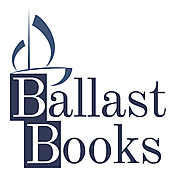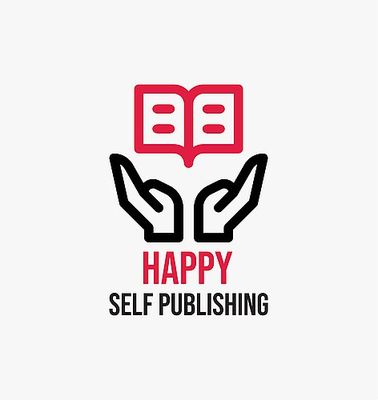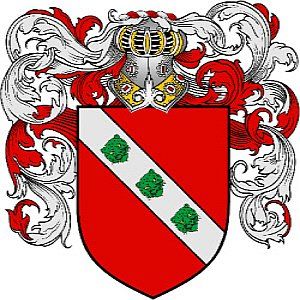Reconciliation in the embattled region contested by three nuclear-armed nations
Analysis of the Kashmir dispute, and finding ways to break the status quo enabling the aggrieved parties to engage in a long lasting and effective dialogue.
Ended
Over the past seven decades the conflict over the disputed region of Jammu and Kashmir has remained unresolved. Although leadership of India and Pakistan has repeatedly attempted to engage in a peaceful dialogue, talks have always ended in stalemate. China also has claims over the disputed Kashmir region. With China’s Belt and Road Initiative to expand its economic prowess, Kashmir has taken on new regional dynamics.
The Kashmir conflict is also one of humanitarian dimensions. Between 1989 and 2009, an estimated 40,000 (Indian figures) and 70,000 (Pakistani and Kashmiri figures) died in the conflict. Today, India holds Pakistani sponsored militants accountable for the ongoing unrest in the predominantly Muslim Kashmir Valley whereas Pakistan claims those who pick up guns against Indian security forces are indigenous Kashmiris who never wanted to be part of India. With the growing threat of Islamic militants and ISIL spreading throughout the world, however, the need for an effective strategy to bring stability back to predominantly Muslim regions has become even more vital.
The aim of Azaadi, Freedom & Change in Kashmir is to analyze the Kashmir conflict and to take case studies of transitional justice in South African and the Timor-Leste peace process as examples to break the status quo that ultimately could bring about change to Kashmir. The ultimate emphasis of the book is aimed at promoting a peaceful dialogue between India, Pakistan, and the people of Kashmir, which would be a first step towards reconciliation, justice, and ultimately peace in the disputed region.
Laura Schuurmans was honored to interview leaders like former President of Timor-Leste Jose Ramos Horta, and former South African President F.W. De Klerk. Both were awarded the Nobel Peace Prize. She also interviewed former Pakistan President Pervez Musharraf, and former Commander in Chief of the Indonesian Armed Forces and Vice President of the Republic of Indonesia Try Sutrisno.
More recently, moreover, the author was grateful to have a conference call with former Norwegian Prime Minister K.M. Bondevik who, in more recent months, traveled to both the Indian and Pakistani side of Kashmir. Bondevik is another bold leader who strongly advocates for peace in Kashmir.
Nobel Peace Laureate (1996) and former President of Timor-Leste (2007-2012) Jose Ramos Horta:
The problem between India and Pakistan, or for instance the Palestine-Israel conflict, is the absence of courageous leaders. A failure of both India and Pakistan has been a tragedy for the Kashmiris. Having said this, there is no united Kashmiri voice that effectively advocates for the rights of the Kashmiris. The people of Kashmir should be smart and engage themselves. They should unite the Kashmiris on both sides of the Line of Control, and include different faiths as well. This way, they can create their own peaceful communities. If people choose to engage in violence, however, there will be repercussions.
Former Commander in Chief of the Armed Forces (1988-1993) and Vice President of the Republic of Indonesia (1993-1998) Try Sutrisno:
If nations want to develop and thrive, it is impossible for two nations that are neighbors to be in conflict with one another. We need to live peacefully side-by-side. Whenever there is conflict, we need to find ways and means to reach out to each other and reconcile, after that we start with the reconstruction, and we make our nations strong. Investment in arms is no solution but investing in education makes our people brighter. Peace is a serious asset required for all of humanity around the globe, and which is the basic human right each individual on this planet deserves.
Chapter 1: Introduction
This chapter is the introduction and the executive summary of the book.
Chapter 2: The making of the armed struggle
Pakistan brought several militant groups into Kashmir in the 1990s. The Kashmiri uprising in the 1990s, however, started out as an indigenous revolt which was orchestrated by the Jammu and Kashmir Liberation Front (JKLF). The author actively engages with Farooq Siddiqi alias Farooq Papa, one of the faction leaders of the JKLF. In 1994 he was left with two choices either to flee Kashmir or be assassinated. The author also engaged with Raja Muzaffar, and she interviewed Sardar Anwar of the JKLF who was incarcerated by Pakistani authorities four times.
Chapter 3: Pakistan’s strategic Northern Frontier
Pakistan effectively has control of Azad (Free) Jammu and Kashmir, and the strategically important region of Gilgit Baltistan located close to Afghanistan, Central Asia, and the predominantly Muslim Uighur region in China’s far west.
Chapter 4: Kashmir in China’s geo-strategic context
China has control of Aksai Chin, which is claimed for by India as part of the disputed region of Jammu and Kashmir. As China has started playing a more dominant role in world affairs, the Belt and Road Initiative (BRI) will continue to alter the overall political and economic dynamics in the region.
Chapter 5: Silence is a crime at times of conflict
This chapter focuses on the hardship and the human rights abuses that have taken place in the Kashmir Valley over the past seven decades. The author has actively engaged with Kashmiri human rights activist Khurram Pervez who lost his leg after an Improvised Explosive Device exploded. The author also interviewed Kashmir’s prominent human rights lawyer Parvez Imroz.
Chapter 6: Kashmir, and the India-Pakistan disparity
Over the past seven decades India has succeeded to become a strong player on the international political stage whereas Pakistan has remained weak.
Chapter 7: A case study of South Africa
South Africa’s political wisdom
Who had expected that peace could prevail in South Africa which was on the brink of civil war in the late 1980s? This chapter provides the reader with a historical analysis and includes the unraveling account of the peace process in South Africa.
Chapter 8: A case study of Timor-Leste
Lessons from Timor-Leste
This chapter analyses the conflict from both the Timor-Leste and Indonesian perspective, and includes a look into the peace process between the two countries following the independence vote in 1999.
Chapter 9: Can the contestants reconcile?
One can ask the question whether there is a possibility of reconciliation between India and Pakistan, and also among the people of Kashmir who need to trade off the importance between peace and independence.
The book is aimed for general and academic readers in Pakistan, India, China, Kashmir, specifically, as well as general interest around the world, to enrich their knowledge on the Kashmir dispute and to initiate a thought process which could eventually lead to a peace dialogue among the aggrieved parties of the conflict. Political leadership in India, Pakistan, and China can also learn lessons from the chapters on the South Africa peace process and Timor Leste's reconciliation with Indonesia. Therefore, readers in Timor-Leste, Indonesia and South Africa may also be interested to learn more about conflict, and conflict resolution. Not much is known of the Kashmir conflict in the world and the conflict has generally drawn very little world attention. The Kashmir conflict involves three nuclear powers.
This book also targets an international audience to generate awareness and more in-depth understanding of Kashmir. It is also interesting for all those who are interested in Kashmir and in conflict resolution. Organizations like the United Nations, the European Parliament in Brussels, and various NGO's throughout the world, would benefit from the book as well. The book is also written for academics and can be used as reference material at universities. The book is not only for students of South Asia but also for those involved in conflict resolution and peace building. The way the book has been written, however makes it easily accessible for a general audience with no prior knowledge of the conflict. In other words, the book has been written for people from all walks of life.
Overall, the Kashmir dispute has lacked attention on the international stage. This book will contribute to bringing the dispute to the attention of an international audience and generate a deeper understanding of today's ground realities in Kashmir. The valuable feedback of leaders like Nobel Peace Laureate Jose Ramos Horta, former South African President De Klerk who was also awarded the Nobel Peace Prize, former Pakistan President Pervez Musharraf, and former Indonesian Vice President Try Sutrisno will provide the reader with in-depth understanding of the methods used to build peace in conflict ridden regions.
After publication, the book can be promoted at various international forums, universities, and think tanks in India, Pakistan, Kashmir, but also Indonesia, Timor-Leste and South Africa. While writing my book, I have been in touch with a fairly large number of people who are interested having a book discussion after publication. There are a some human rights organizations that have also shown interest. I have also been in contact with Kashmiris from various organizations in Europe, Canada and the United States who offered me to arrange a launch to promote my book. In general there is a fairly large community of Kashmiri diaspora spread around the world and who share interest in the conflict and they would be pleased to arrange an event in honor of the book. Journalists from the Kashmir region have also shown interest to review the book and write about it in a variety of newspapers.
Main competing books:
Howard Schaffer: The limits of influence Brookings Institution 2009
The Limits of Influence chronicles America's views on—and involvement in—the long-standing struggle waged between India and Pakistan over Kashmir since their independence in 1947.
Sumantra Bose: Roots to Conflict, Paths to Peace
Harvard University Press, 2003
Drawing on extensive firsthand experience in the contested region, Sumantra Bose reveals how the conflict became a grave threat to South Asia and the world and suggests feasible steps toward peace.
Victoria Schofield: Kashmir in Conflict
India, Pakistan and the Unending War
I.B. Taurus 2000
Drawing upon research in the state of Jammu and Kashmir, India, Pakistan, and a range ofhistorical sources, Schofield analyses critically the actions of the key players who, throughoutits history, have contributed to the current militarisation of the valley.
Robert Wirsing: India, Pakistan and the Kashmir Dispute: On Regional Conflict and its resolution
Palgrave Macmillan 1998
Drawing on repeated field visits and wide-ranging interviews with government officials, political leaders, military officers, and diplomats in both India and Pakistan, the author provides abundant new material on the Kashmir dispute's political and military, domestic, and international dimensions.
Tariq Ali and others: Kashmir The case for Freedom
Verso 2011
In the last two decades alone, over seventy thousand people have died. Ignored by its own corrupt politicians, abandoned by Pakistan and the West, which refuses to bring pressure to bear on its regional ally, India, the Kashmiri people’s ongoing quest for justice and self- determination continues to be brutally suppressed. Exploring the causes and consequences of the occupation, Kashmir: The Case for Freedom is a passionate call for the end of occupation, and for the right of self- determination for the Kashmiri people.
Christopher Snedden: Understanding Kashmir & Kashmiris
Hurst 2015
Snedden weaves a compelling narrative that frames the Kashmir dispute, explains why it continues, and assesses what it means politically and administratively for the divided peoples of J&K and their undecided futures.
A.S. Dulat: Kashmir the Vajpayee Years
HarperCollins 2015
In this extraordinary memoir that reads like a thriller, Dulat gives a sweeping dramatic account of the difficulties, success and near triumphs in this effort, showing the players, the politics, the strategies and the intent and sheer ruthlessness of the meddlers from across the border. Kashmir: The Vajpayee Years paints an unforgettable portrait of politics in India's most beautiful but troubled state.

Laura is an independent writer and researcher. She has been actively working on the unresolved Kashmir dispute for over a decade.
1,000 copies • Partial manuscript.
Publishizer is a book crowdfunding platform and literary agency that matches authors with publishers. Authors write proposals, readers pre-order copies, and publishers express interest to contact authors. Publishizer queries publishers based on criteria such as: book category, proposal quality, and pre-order copies milestones at the end of the campaign. The author receives a range of offers, and selects the best one. We have both published books and represented authors.

250 copies • Partial manuscript.
Sunbury Press, Inc., headquartered in Mechanicsburg, PA is a publisher of hardcover, trade paperback, and eBooks featuring established and emerging authors in many categories. Sunbury's books are sold through leading booksellers worldwide. We are a traditional royalty-paying trade publisher.

250 copies • Completed manuscript.
Atlantic Publishing has been providing millions of readers information to jumpstart their careers, start businesses, manage employees, invest, plan for retirement, learn technologies, build relationships, and live rewarding, fulfilling lives. Our award-winning authors and publication staff strive to make our products the best and most up-to-date available. We go further than most publishers to get our customers the best products.

250 copies • Partial manuscript.
Ballast Books is a full-service hybrid publisher that handles all aspects of book creation, design, publishing, marketing, distribution, and platform building. We help our authors sell more books, secure more keynotes, do more consulting, earn more customers, and book more media appearances.
We want to work with the best of the best: Former Special Operations Forces, CEOs, big thinkers, industry-leading experts. Top-performing people with experiences worth sharing and skills that translate into a larger message and goal.
We've seen particular success with military memoirs, but we've also recently hired a children's book specialist, so we run the spectrum of genres. We're a small but growing team and take pride in dedicating more time and energy to all our authors than traditional publishers.

250 copies • Partial manuscript.
Hybrid Global Publishing is a full service Hybrid Publishing Company dedicated to helping authors, speakers, and entrepreneurs get their message out by writing and publishing a book. We offer developmental editing, publishing, distribution, and marketing services for independent authors who are interested in speaking on stage, becoming more visible in the media, and establishing more credibility. The team has a combined 80 years of experience in publishing and has held editorial, management and marketing positions at major publishing houses, including The Free Press, Crown, Random House, and Avon.

250 copies • Completed manuscript.
Koehler Books is an Indie publisher based in Virginia Beach, Virginia. Our team of dedicated professionals promises you a holistic publishing experience where you'll receive our full attention, collaboration, and coaching every step of the way. We offer two publishing models: a traditional non-fee model for the highest quality work, as well as a co-publishing model that includes creative development fees for emerging authors. Our titles are broad-based and include nearly every major non-fiction and fiction genre.

Radius Book Group is a 360°, multiplatform publisher offering unparalleled support to entrepreneurial authors. With our deep industry relationships, expert content development, and broad market reach, we’re redefining what successful publishing looks like.
In addition to print and digital books, Radius Book Group has in-house audio production capabilities that can help you create, produce, and distribute premium audiobooks or podcasts. Radius can integrate the distribution and marketing of your audio projects with the book publication.

Dear Author,
You worked hard to write your manuscript, and you know that expert assistance is needed to ready it for the market. But perhaps you didn’t realize that working with a publisher is no longer necessary—especially publishers who charge fees to produce your book upfront and "share" more of your revenue whenever a book is sold.
1106 Design is an author services company that has served over 4,000 authors since 2001. We offer all the editorial and design services you’d expect from a publisher, transforming your manuscript into a polished book. But here's the difference: we help you secure print-on-demand printing and worldwide distribution in YOUR name. This means you'll earn several dollars more for every book sold instead of a meager “royalty” and never lose control of your book or your book files.
We understand that your book is not just a passion project but also a potential source of income. No two books or authors are alike. That's why we'll customize a package of services tailored to your needs at affordable prices, starting at $5,555. And here's the best part: after this one-time investment, every penny of revenue from book sales is deposited directly to your bank account, never to ours first.
If this sounds like a better way to publish your book, I invite you to browse our services, design samples, no-surprises pricing, outstanding customer reviews, and educational articles at https://1106design.com. You can download a free PDF of my book, "Publish Like the Pros: A Brief Guide to Quality Self-Publishing and an Insider's Look at a Misunderstood Industry," and request a free, no-obligation consultation.
1106 Design is rated A+ by the Better Business Bureau. We are a “Highly Recommended Expert” at IngramSpark.com and rated "Excellent" at Alli, The Alliance for Independent Authors, at SelfPublishingAdvice.org. Alli's "watchdog list" of the best and worst publishing services companies is an invaluable resource.
How can we serve you today?
Sincerely,
Michele DeFilippo, owner

250 copies • Partial manuscript.
Atmosphere Press is an independent publisher dedicated to author rights. We publish in all genres and have an exceptional editorial, design, and promotional staff. We stand for Honesty, Transparency, Professionalism, and Kindness. We want our authors and their readers to be blown away when they first hold that book in their hands. It needs to look good inside and out, and feel good to the touch. And, of course, the words need to be top-notch, and our editors are devoted to making that the case.

250 copies • Partial manuscript.
Authors Unite helps you become a profitable author and make an impact. We take care of printing and distribution through major online retailers, developmental editing, and proofreading with unlimited revisions. We take care of the entire process for you from book cover design all the way to set up your backend so all your book royalties go straight to your bank account. We can also help with ghostwriting if you prefer not to have to figure out all the steps on how to write a book yourself.
With our book marketing services, you don’t need to worry about figuring out all the steps on how to market a book or how to become a bestselling author. We’ve helped hundreds of authors become bestselling authors on Amazon, USA Today, and The Wall Street Journal. We take care of the entire book launch process for you to help you sell thousands of copies of your book and become a bestselling author.
View case studies here: https://authorsunite.com

100 copies • Partial manuscript.
Bookmobile provides book printing, graphic design, and other resources to support book publishers in an ever-changing environment. Superior quality, excellent customer service, flexibility, and timely turnarounds have attracted nearly 1,000 satisfied clients to Bookmobile, including trade houses, university presses, independent publishers, museums, galleries, artists, and more. In addition, we manage eBook conversions and produce galleys, and regularly provide short-run reprints of 750 copies or fewer for major publishers such as Graywolf Press.

100 copies • Completed manuscript.
eBooks2go, Inc. was founded in 2011 to provide the missing link for all your publishing needs. Our end-to-end solutions provide the guidance and support that enable publishers and independent authors to pursue their passions. To date, we have helped more than 1,000 authors and 250 publishers worldwide. We offer an array of simple and affordable solutions to assist self-publishing authors at every stage of the book publishing process. Our comprehensive service offering includes editing, print and eBook production, book marketing, cover designs, ISBN registration, and even website designs. We are a single source for all of your publishing needs.

100 copies • Completed manuscript.
Happy Self Publishing has helped 500+ authors to get their books self-published, hit the #1 position in the Amazon bestseller charts, and also establish their author website & brand to grow their business. And the best thing is, we do all this without taking away your rights and royalties. Let's schedule a call to discuss the next steps in your book project: www.meetme.so/jyotsnaramachandran

ShieldCrest are book publishers based in the UK who fill that vital gap for talented authors where mainstream publishers are unwilling to give them that chance. We strive for excellence and invest in our authors and are listed in FreeIndex as the number one independent publisher in the UK for price quality and service rated author satisfaction. We publish books of all genres including; fiction, historical, biographies and children's books.
ShieldCrest publishing continues to grow rapidly with satisfied authors throughout the UK and overseas. Our range of products includes paperbacks, hardbacks and digitised e-books in all formats used globally in the myriad of e-readers.
In addition to the above, ShieldCrest provides a complete range of services including book design and layout, illustrations, proof reading and editing. For marketing we offer author web page, press releases, social media marketing packages and many other support services to help both first time and experienced authors get their books into the market quickly and maximise on the opportunities available.
These services enable us to guide our authors through the process as we transform their manuscript into a professional book, which can take its place with pride next to any famous author's book of the same genre.
The staff at ShieldCrest have many years experience in the book industry and this wealth of experience is put at the disposal of our authors.
Our clients include established authors such as Diane Marshall who has been acclaimed as the best writing talent to come from Scotland for years by The Scotsman newspaper, and Prof Donald Longmore OBE, who performed the first heart transplant in the UK and has sold thousands of medical books used by students throughout the world. We also recently released "Martin Foran-The Forgotten Man" by J.R. Stephenson, which features fraud within the police, abuse within the prison service and injustices in the courts and has been featured in the press and on TV.

Chapter 1: Introduction
Lessons from Timor-Leste
The once volatile border dividing Timor-Leste and Indonesia used to be under firm military control. During Indonesia’s occupation of then East-Timor, the border was a flashpoint of military incursions. From 1975-1999, Indonesian security forces killed tens of thousands of Timorese, while others died in the dense forests from starvation or illness. For almost a quarter of a century, a quarter of the population died, which calculates to an estimated 250.000 Timorese, the vast majority who were civilians. While I visited Timor-Leste for field research, I listened to stories of women left alone in the forests, with no food, no shelter, and some even without shoes. When Timorese wanted to travel outside the occupied territory, they needed a special permit or surat jalan that Indonesian authorities would issue. Following years of international pressure, in 1999 the international community brokered a UN sponsored referendum and the Timorese overwhelmingly (78.5 percent) voted for independence. In retaliation, the Indonesia-friendly militia set the entire country systemically on fire in the days and weeks that followed. They responded with massive violence and destruction, supported by the Indonesian army, which forced some 250.000 people to flee their homes.[i]In 1999 alone, an estimated 1,400 political murders were committed.[ii]Tens of thousands of East Timorese were forced to flee over the border into Indonesia and settle down in refugee camps. United Nations (UN) peacekeeping forces arrived in Timor-Leste and stayed there from 1999-2006 to bring back stability. In 2006, however, an internal crisis erupted which cost at least 32 death and led to approximately 150,000 people being driven from their homes.[iii]On 11 February 2008, rebels attempted to assassinate both Jose Ramos-Horta and Xanana Gusmao, the founding fathers of today’s independent Timor Leste. Ramos-Horta was shot right in front of his home, seriously injured, and air lifted to Darwin where he received medical treatment. Gusmao narrowly escaped assassination and remained unharmed. ‘My brother is a very forgiving person’, Arsenio quietly spoke as he talked of Ramos-Horta’s assassination attempt. Peace in Timor-Leste would gradually be restored again.
More than four decades after the conflict first erupted in 1975, the once volatile border is now safe, Timor-Leste is fragile but free, and bilateral relations between Timor-Leste and Indonesia have become an example for world peace in post conflict ridden regions. Who had expected that after such severe military oppression in Timor-Leste, leaders of both nations would reach out and reconcile. The Indonesian military could have easily departed on a long journey of vengeance after independence. During my visit to Timor Leste, Arsenio Ramos-Horta guided me around during my entire stay. We drove to Batu Gede, the border post with West Timor, Indonesia. On our way we met with two Indonesian soldiers who had casually walked into Timor-Leste. When Arsenio told the soldiers about my initiative of writing a book on Kashmir in which I would include a case study of Timor-Leste’s roadmap towards peace and reconciliation from which we could learn lessons that could lead to dialogue in Kashmir, the Indonesian soldiers proudly stated
‘Don’t forget to write down in your book that today, the Timor-Leste Indonesia border is one of the safest in post-conflict regions’.[iv]
Anyone can now freely cross the border between Indonesia and Timor-Leste without any hurdles, families who are divided on both sides of the border can easily visit each other, even if they do not always have valid travel documents. When someone has passed away or gets married on the other side, immigration authorities usually facilitate their border crossing or simply turn a blind-eye.
‘Indonesia and Timor-Leste are now at peace with each other, the two are friends, and we will remains friends’[v].
Once again, the soldiers spoke with a sense of pride.
As I sat down with Dr Jose Ramos-Horta, former President of Timor-Leste and Nobel Peace Laureate (1996), I emphasized that Timor-Leste-Indonesia bilateral relations are stable and peaceful. ‘This is a unique example of success. Building peace is the world’s most difficult job’, I said to Dr Ramos-Horta. I asked him to tell me more about the reconciliation process between Indonesia and Timor-Leste:
Nobel Peace Laureate Jose Ramos Horta: Right after the UN-sponsored referendum in August 1999 violence broke out in Timor -Leste. Xanana Gusmao and myself traveled to Indonesia in October of that year, one month after the eruption of violence. We met with all military leaders, and with President Gus Dur, and a sustained dialogue process began that led to Indonesia’s full cooperation with us and the United Nations in the transition period from 1999-2002.
This culminated in President Megawati's attendance of the independence celebrations in May 2002. There was a strong commitment of leaders of both sides in starting the process of reconciliation; but this was made easier by 24 years of a firm and consistent policy of never demonizing the people of Indonesia and Islam. The word “enemy” does not exist in our vocabulary.’[vi]
Unfortunately, the case of Timor-Leste and Indonesia is rare, and for the past seventy years, the Indo-Pakistan border has remained heavily militarized. Innocent civilians who have been living alongside the borders have become victims of cross-border fire, targeted killings, and also landmines. The 2003 Ceasefire Understanding between the two countries has repeatedly been violated. In 2015, Indian soldiers shot death two Pakistani military officers crossing the border along the Working Boundary when they went the Indian side for a regular flag meeting. The two Pakistani officers were holding a white flag. Likewise, in 2017 Pakistani officers killed two Indian soldiers along the Line of Control and they embarked on a barbaric act by mutilating their bodies. During my visit to Sialkot, I talked to villagers who had been living right on the border for generations and who were protecting their cattle from cross-border shelling at night by giving those animals shelter inside their tiny homes. Antagonism between the two nuclear archrivals has been deeply rooted after millions of people witnessed the sheer brutalities that took place during the partition of the British Raj in August 1947 and the creation of India and Pakistan respectively. Enmity consolidated following Kashmir’s accession to India in October. Antagonism does not always easily fade away in the minds of people leading to ongoing hatred, mutual suspicion, and ultimately revenge. As long as people remain victims of violence, bloodshed will linger, the vicious circle will never halt, and acts of violence will be transferred from one generation to another. As a result, war over Kashmir could eventually escalate into a (nuclear) flashpoint of which the repercussions for world peace remain yet to be seen.
Kashmir’s Wall
The Soviets constructed the Berlin Wall during the Cold War. The 38th parallel has been dividing North and South Korea, and Israel’s Wall has separated the people of Palestine. The Line of Control (LOC) is yet another wall dividing people in the disputed State of Jammu and Kashmir. Closed borders, military checkpoints, and landmine fields along this de facto border, have separated Kashmir from India and Pakistan. During one of my visits to Chikoti along the Line of Control I talked to one Kashmiri whose sister had lost a limb after stepping on a mine. To prevent militants from crossing into Indian Kashmir, parts of the Line of Control are mined with thousands of landmines. India also fenced vast parts of the Line of Control. Originally known as the Ceasefire Line (1949-1972), the Line of Control divided tens of thousands of families in the aftermath of the first Indo-Pakistan War in 1947. More families were divided during the armed uprising in the Kashmir Valley in the 1990s. Alloudin Butt is a retired primary schoolteacher who fled his home village Karen in Kupwara district located in Indian Kashmir. He crossed the then volatile Line of Control into Pakistan’s Kashmir during the heights of the armed insurgency in the early 1990s. Indian authorities accused him of supporting the militancy during the uprising. He has denied those allegations. For the past decades he has been living in a camp in Muzaffarabad designated for displaced Kashmiris who fled Indian Kashmir during the conflict. Some of them were actively involved in, or supporters of the armed uprising against Indian occupation. Many women were quiet bystanders, and they were left with no choice but to flee. Many of these women I spoke to, are left with the scars of conflict which have been addressed inadequately, and which often leads to trans-generational trauma where the distress of war is being transferred from parents to children, from one generation to the next. I listened to the story of one woman who fled all alone at night. She spent three days and three nights in the forest crossing landmine fields into Pakistan’s Kashmir to be reunited with her husband who had fled earlier to escape persecution by Indian security forces. While having a chat together with some of Alloudin’s relatives over a cup of Kashmiri tea with some fresh oranges at his nephew’s home in Muzaffarabad, Alloudin started talking while trying to hide his emotions and says
‘Do you know that when I travel to the Line of Control I can see my other elder brother on the other side of the Jhelum River, I can even wave at him, and he waves back, but we cannot talk, we cannot meet either. All I am longing for is to go home’.[vii]
As he speaks Alloudin quietly sits down on the floor of his nephew’s home, he stares at the sliced oranges right in front of him, then starts gazing into space, and he quietly breaks down in tears as he finishes talking. Tears continue strolling down the cheeks of the elderly man. After some minutes of silence he wipes his tears, apologizes, and when I asked him what he would like to see happening in Kashmir he answered:
‘I always get sad when I think of my brother and of those troubled years of armed conflict. I am sorry that I cried but I hope that India and Pakistan will engage in a dialogue so I can be reunited with my brother again’.[viii]
The urgent need for peace
In the past few decades non-conventional warfare or terrorism has replaced conventional warfare of which some of the first seeds were planted in 1979 when the Soviets invaded Afghanistan, and the mujahedeen defeated the Red Army in 1989. At that time, the US and Pakistan were staunch allies, and it was in the interest of Pakistan to join the United States during the Cold War as the Soviets were advancing into the region, attempting to get access to the warm waters of the Indian Ocean through Pakistan.[ix]In the following decades, the terrorist threat has steadily been spreading throughout the world reaching from cities like London, Paris and Boston to attacks as far as Indonesia, Egypt, and Tunisia. Innocent Muslims and non-Muslims from all walks of life have become victims of what seems leading to a continuing widening gap, and a never-ending conflict threatening diverse, democratic and secular societies. International politics in today’s world, especially after 11 September 2001, has been dominated by ethnic and religious conflict, by people identifying with religion to a greater degree than any enlightenment thinker could have imagined.[x]There does not appear to be a quick and easy solution to bridging the growing gap between the West and the Muslim world. This gap, moreover, will unlikely draw any closer as long as Muslims back in their homeland feel they are being ‘occupied’ or ‘subjugated’ by non-Muslims. The sound of jackboots marching through cities, towns, and villages has also reminded the majority Muslim population in the Kashmir Valley of India’s ‘occupation’ in a land they claim belongs to them. This subjugation has led to a strong sense of alienation, injustice, and resentment. A lack of democratic values, ongoing human rights violations, and black laws has been harming innocent civilians. This does not only has given victims of oppression a reason to pick up arms, but this this has also created a vacuum for state and non state actors alike to stage brutal attacks against political adversaries. It is an undeniable fact that terrorism in Pakistan will never be rooted out as long as the Kashmir conflict has remained unresolved. In the early 1990s, Pakistan swiftly created Hizbul Mujahideen (HM) to counter the efforts of the Jammu and Kashmir Liberation Front (JKLF). HM has favored full integration with Pakistan, whereas JKLF has aspirations of the creation of a fully independent state. In 2017, the United States designated Syed Salahuddin, the commander of the Hizbul Mujahideen as a global terrorist. Pakistan, however, also created Lashkar-e-Taiba (LT) being notorious for staging brutal attacks against the Indian state and also the Hindu minority in the Valley. In 2008 LT allegedly was held accountable for the Mumbai attacks. Although the security situation in Kashmir seems to have improved following Pakistan’s crack down on militancy after the September 11, 2001 tragic attacks on the United States, and the militancy has reached its lowest in the Valley in recent years, this does not imply that militants have denounced violence and laid down their weapons. The popular uprising in the Valley following the killing of Burhan Wani in July 2016 resulted in mass protests, violence, and an entire shutdown of the Kashmir Valley. Human rights have continued to be violated.
As the security conditions have continued to deteriorate, I got in touch with Kashmir human rights lawyer Parvez Imroz who was awarded the Ludovic-Trarieux International Human Rights Prize (2006), and also the prestigious Thorolf Rafto Memorial Prize (2017) for his efforts to bring about justice to the disputed region.
What action plan should both India and Pakistan take to stop the human rights abuses in Kashmir? Concurrently, is there any action plan of the people of Kashmir that could ease the tensions in the Valley.
Kashmiri Human Rights Lawyer Parvez Imroz: There is no action plan in foreseeable future and the government of India is intransigent. There is complete deadlock between the two countries and Kashmir is off the table. On the contrary, the belligerency from both sides, which is evident from the repeated violations of the Line of Control. Kashmiris are besieged and they have no action plan so far, that too when the Indian state has initiated operation “All Out” i.e. to use more repressive measures against the activists including human rights activists and also against the people who are confronting the occupation through non-violent means, which is more difficult for the state to deal with than the militancy which is easy for them to deal.[xi]
End notes:
[i]Reconciliation and Conflict Resolution in East Timor. Lessons for future peace operations. Olav Ofstad. Oxford Institute for Ethics, Law, and Armed Conflict. April 2012
[ii]East Timor. Country summary. January 2005. Human Rights Watch
[iii]Reconciliation and Conflict Resolution in East Timor. Lessons for future peace operations. Olav Ofstad. Oxford Institute for Ethics, Law, and Armed Conflict. April 2012
[iv][iv]Visit to Batu Gede, border post between Timor-Leste and Indonesia on 16 September 2015, meeting with “Sersan Dua” Roberth A. Fahiberek and “Sersan” Jose Matos de Araujo Nunes
[v]Ibid
[vi]Interview with Dr Jose Ramos Horta. Dili, September 2015
[vii]Interview in Muzaffarabad, 8 February 2015
[viii]Ibid
[ix]Meeting with former Pakistan President Pervez Musharraf at his residence in Dubai. 27 April 2018
[x]Kwasi Karteng. Ghosts of Empire. Public Affairs. New York. 2011 Page 140
[xi]Interview with Kashmiri human rights lawyer Parvez Imroz. September 2018
Dear friends around the world,
Hope all is well.
In the event it has not yet been clear I officially ended my campaign with Publishizer …
Dear friends around the World,
My sincere apologies for keeping you waiting so long but I regret to let you know that the institution/publisher based …
Dear Friends around the world,
Just to inform you that another academic publisher has now requested the manuscript. This one is based in the United …
Dear Friends around the world,
Greetings from the tropical sunshine in Jakarta. My apologies for being out of touch for a while.
Some friends of …
Dear Friends around the world,
I am sending you a quick update to let you know that I have submitted the full manuscript to Publishizer. Several …
Dear Friends around the world,
Thank you so much for your support and patience. Publishizer has included my profile into their Rights Guide that connects me …
Dear Friends around the world,
Thank you so much for your support and patience. Publishizer’s team is still in active discussion with different publishers.
Last week …
Dear Friends around the world,
Thank you so much for preordering my book Azaadi, Freedom & Change in Kashmir. It was a successful campaign and …
was referred to your book by Martha Renon

Thanks for the update. Good luck with the process of getting the book published. Regards, Raza Ali
$12 Sold out
125 readers
1 Copy of the autographed limited edition of the book "Azaadi, Freedom & Change."
Includes:
$24
7 readers
2 Copies (One for you and one for a friend) of the autographed limited edition of the book "Azaadi, Freedom & Change" + Invitation to the book launch.
Includes:
$35
7 readers
3 copies of the autographed limited edition of the book "Azaadi, Freedom & Change" + Invitation to the book launch + A Big Thank you mention in the book.
Includes:
$67
5 readers
5 copies of the autographed limited edition of the book "Azaadi, Freedom & Change" + Invitation to the book launch + Your name mentioned in the book.
Includes:
$119
9 readers
10 copies of the autographed limited edition of the book "Azaadi, Freedom & Change" + Invitation to the book launch + Your name mentioned in the book.
Includes:
$299
13 readers
25 copies of the autographed limited edition of the book "Azaadi, Freedom & Change" for you and your team or group + invitation to the book launch + Your organization’s/individual's name mentioned in the book as a Sponsor. A special section of the book will be designated to write something about you or your organization.
Includes:
$3600
0 readers
300 copies of the book "Azaadi, Freedom & Change" + invitation to the book launch + Your organization’s/individual's name mentioned in the book as a Sponsor. A special section of the book will be designated to write something about you or your organization.
Includes:
on Feb. 7, 2019, 12:41 a.m.
Amazing work Laura! Can't wait to read it!